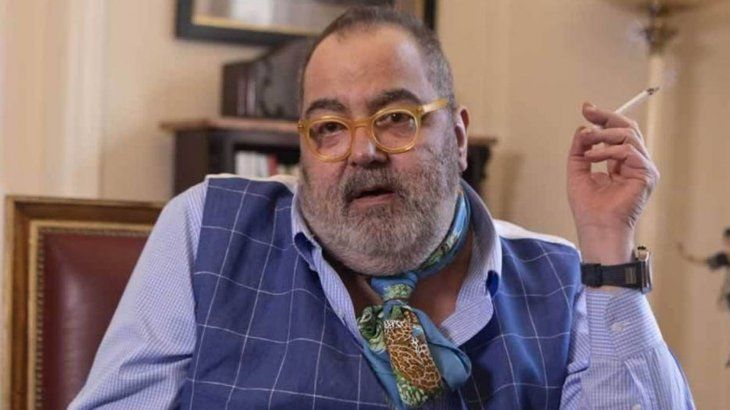Justice lifted the legal muzzle on the case of Jorge Lanata
The novelty of the case is that this Sunday it emerged that Judge Lucila Córdoba, of Civil Court 8, suspended the unusual legal muzzle that she had imposed on the media, prohibiting them from mentioning Jorge Lanata.
The judge had granted a claim by Marcovecchio herself, but the negative impact of the measure was immediate, especially due to the paradoxical circumstance involving a leading figure in journalism and, consequently, freedom of expression.
As detailed by Judge Córdoba, the decision to retrace her own steps was not due to a legal conclusion, but to an answer that Lanata himself would have given him on the matter.
jorge lanata
The journalist continues to have health problems.
“One can always go out and respond”the journalist told the magistrate, about whether he considered that the content of the articles that could be published about what happens to him could be offensive.
“They are expressions of will of the deceased, coinciding with those of his family members mentioned above,” said Judge Córdoba, who enabled the channels of his setback at the weekend, so that he could be informed through the corresponding judicial channels.
“The family members stated in the same sense that they have no objection to talking about Mr. Lanata’s health and that is his will,” the magistrate explained.
Questions from ADEPA and the National Academy of Journalism
“It is a measure that should be annulled more quickly than the one that preceded its issuance, because it is incompatible in letter and spirit with the constitutional and international norms that prohibit prior censorship,” ADEPA had pointed out about the legal muzzle when it became known. , adding that “article 14 of the National Constitution and article 13 of the Pact of San José of Costa Rica are so clear and resounding on this matter that the judicial levity that has violated them cannot be explained.” It was even highlighted that “the Inter-American Court of Human Rights has established that any preventive measure that prevents the exercise of freedom of expression, including judicial decisions, constitutes prior censorship.”
For its part, the National Academy of Journalism, with the signatures Silvia Naishtat and Joaquín Morales Soláemphasized that Judge Córdoba’s ruling constituted “a danger and a very serious threat to freedom of expression and information transparency“.
“Prior censorship is incompatible with democratic principles“, they emphasized from the Academy, citing international and constitutional norms that explicitly prohibit it, the entity noted.
Source: Ambito
I am an author and journalist who has worked in the entertainment industry for over a decade. I currently work as a news editor at a major news website, and my focus is on covering the latest trends in entertainment. I also write occasional pieces for other outlets, and have authored two books about the entertainment industry.




